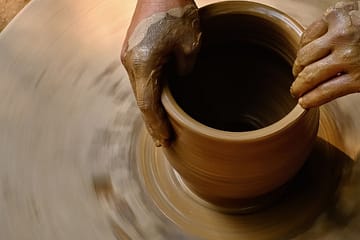I love that local pride sells. There are cute t-shirts with the phone area code for Minneapolis. I’ve drooled over the many lovely shirts out there with the shape of the state of Minnesota and a heart on the inside. I think these shirts are all interesting because we are trying to find a way to make going local part of our culture.
I think we can and must go a lot farther than celebrating phone numbers and geopolitical boundaries. These are too abstract. What about the soil, water, plants animals, and people of the actual place?
Here’s what I’m looking for in a culture of place:
A culture of place is led by the indigenous communities from that particular region.
In a culture of place everyone comes from some place (or places) and has a connection to the indigenous wisdom of that place.
Yes, I’m talking massive world view change. Creating place-based culture today would literally require an evolutionary leap. It’s mind boggling yet something I can’t stop pondering. How are we going to make the new local-yet-global, diverse, place-based culture that we so desperately need in order to survive?
I love to lean into these questions. I practice asking them through my dancing. For example the Wisdom Dancers perform an arrangement of a European traditional tune in Greek, Turkish, English, and Ojibwe.
The tune goes by many names and is widespread throughout the Balkans, Greece, and Asia Minor. It is an example of the cultural threads that are shared throughout the region regardless of the current political boundaries.
 Both the Greek and Turkish versions of the songs are about people on journeys. In Greece they might dance to this tune in short lines, switching leadership roles throughout the dance. Laura Shannon has done pioneering research on how this sharing of leadership is one of the many ways traditional dances embody an ancient worldview of sustainability, community, and reverence for the earth.
Both the Greek and Turkish versions of the songs are about people on journeys. In Greece they might dance to this tune in short lines, switching leadership roles throughout the dance. Laura Shannon has done pioneering research on how this sharing of leadership is one of the many ways traditional dances embody an ancient worldview of sustainability, community, and reverence for the earth.
Thinking about this widespread tune and dance practice, I wondered what it would be like to make a version particular to my contemporary place and time. The traveling theme in the song made me think about the water walking I have done. In an indigenous-led water walk a team of walkers carry a vessel of water in relay from the headwaters to confluence. The passing of the water is very similar in spirit to the ways that women take turns as line leader. Inspired by these correlations I wrote English lyrics titled “Walking the River.â€
When the Wisdom Dancers perform the “Walking the River†song we are making connections between present day Ojibwe-led water ceremonies and ancient European wisdom. Part way through the song, where there might traditionally be an improvised solo in the music, I insert the water song. Sung in Ojibwe, the water song is integral to the water ceremonies that I attend and also freely shared with the request that everyone sing to the water every day
Dancing Prototypes
As we sing and dance we are creating a new placed-based culture prototype. We are experimenting with ways of honoring both the indigenous leadership where we live and the ancient wisdom encoded in traditional dance from Old Europe (today the Balkans, Greece, and Asia Minor). As we dance, we are practicing something that we hope to live out throughout out lives.
No one knows what a new place-based culture will be like. It’s time to support the radical resurgence of indigenous communities everywhere. We will have to embrace the incredible complexity of our global times such as the nearly 90 languages spoken by the study body of the Minneapolis Public Schools. Just as we are figuring out how to be increasingly diverse together, I think we will need to find a new experience of unity, something I can hardly imagine. Maybe if we can practice dancing it, we will find a way to live it.
The Wisdom Dancers will be performing this dance as part of a whole program celebrating water and water protectors at WaterFest. Find us a Lake Phalen in Saint Paul, Saturday June 2 at 2 p.m. I’d love to see you there!
With joy!
emily
Group Practices
Drop in any week to Healing Waters Qigong, a Spring Forest Qigong practice group, or to the Wisdom Dances dance practice, based in Laura Shannon’s research on traditional dances as tools for healing and transformation.
A Tender Space for Transformation
It can be so frustrating to feel that the healing or creation you seek eludes you. This is why I help people address the root energetic and spiritual nature of their challenges through qigong healing.


